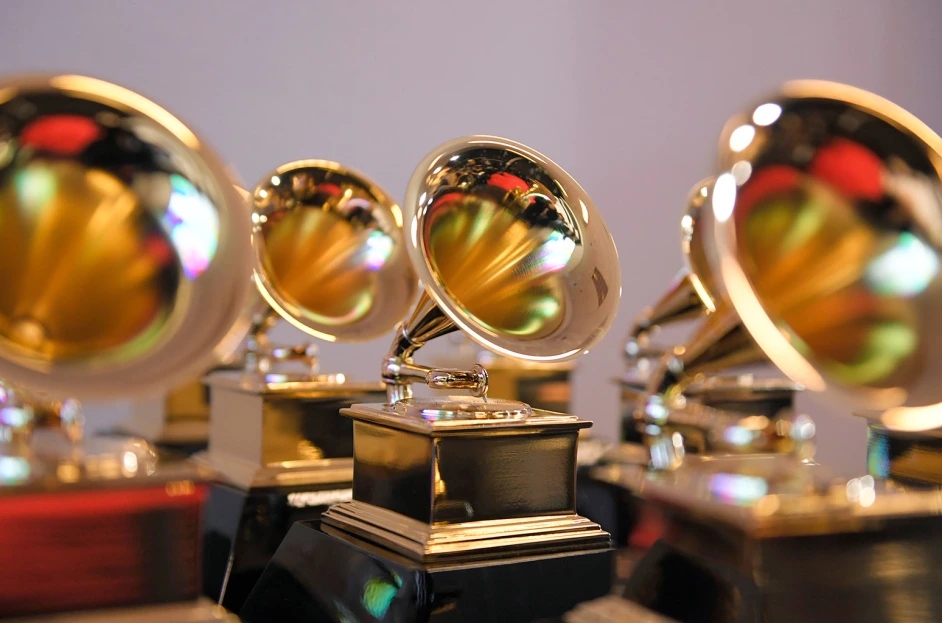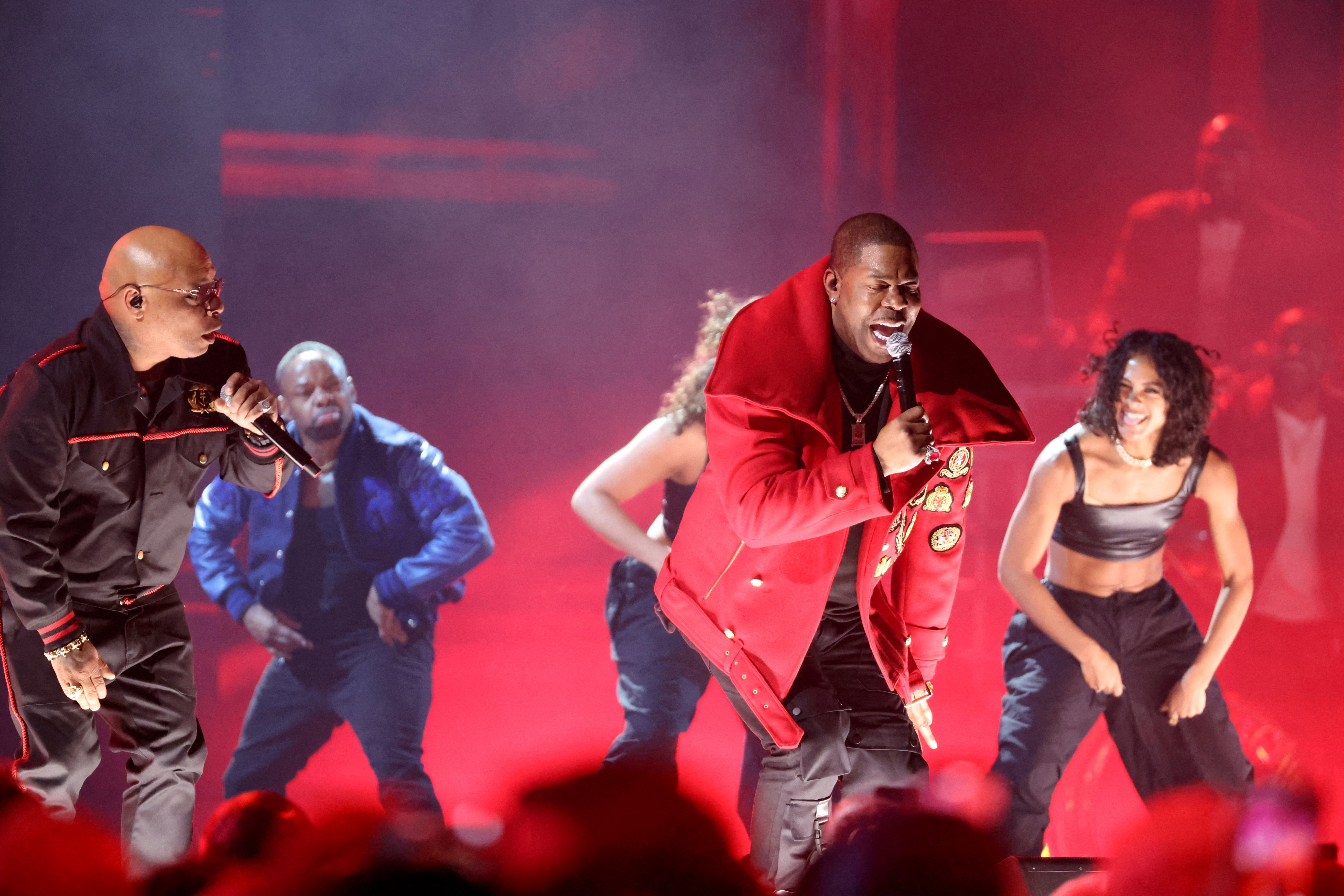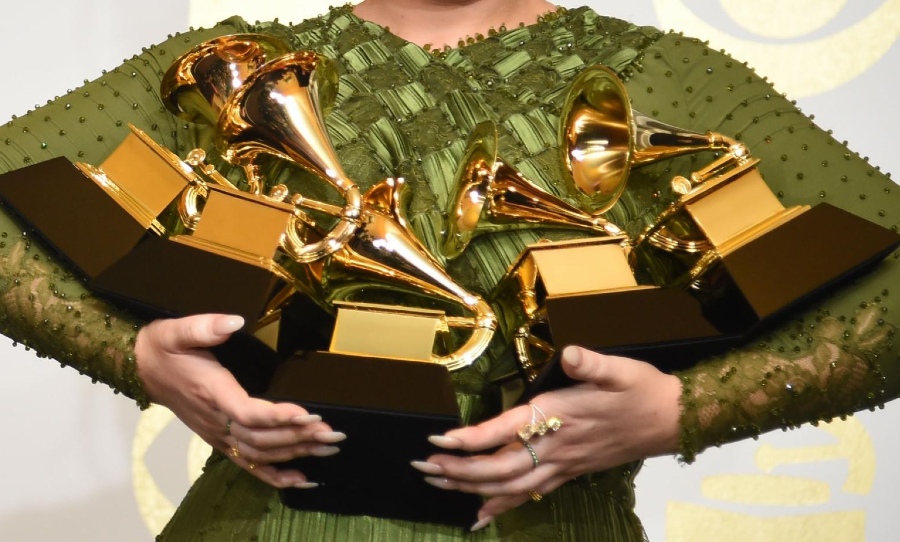New Grammy Award Rules Require Human Input And No Artificial Intelligence Use
The Grammy Awards, one of the most prestigious honors in the music industry, has recently introduced new rules. New Grammy Award rules require human input and no artificial intelligence use in the creative process. These changes aim to preserve the essence of human artistry and ensure that the awards celebrate the contributions of human creators.
Author:Xander OddityReviewer:Dr. Felix ChaosphereJun 22, 202314.4K Shares206.8K Views

The Grammy Awards, one of the most prestigious honors in the musicindustry, has recently introduced new rules. New Grammy Award rules require human input and no artificial intelligence usein the creative process. These changes aim to preserve the essence of human artistry and ensure that the awards celebrate the contributions of human creators.
The decision has sparked discussions about the intersection of technology and creativity, raising questions about the role of AI in the music industry.
Details Of The New Grammy Award Rules
The Grammy Awards, often referred to simply as the Grammys, are one of the most prestigious awards in the music industry. They recognize outstanding achievement in various categories of music, including pop, rock, hip-hop, country, jazz, classical, and more.
The awards are presented annually by the Recording Academy, a prestigious organization composed of professionals in the music industry, including musicians, producers, engineers, and other industry experts.
The Grammy Awards ceremony is a grand event, typically held in a notable venue and attended by top musicians, industry professionals, and celebrities. It is broadcasted live on television, reaching millions of viewers worldwide.
The awards cover a wide range of categories, recognizing achievements in various genres, technical aspects of music production, and even music video production.
New Grammy Award rules require human input and no artificial intelligence use. The new rules implemented by the Grammy Awards explicitly require that music submissions for consideration must involve significant human contribution.
The guidelines state that AI-generated or AI-altered tracks will not be eligible for Grammy nominations unless there is substantial involvement and creative contribution from human artists. This means that AI tools and technologies can be used as tools or aids by human creators, but the primary creative force must be human.
"Only human creators are eligible" for Grammy accolades, the Recording Academy announced on Friday, June 16, as the organization that bestows the most prestigious music accolades in the world attempts to limit the use of artificial intelligence (AI) in the industry.
According to the academy's revised regulations, AI-only works are prohibited, but music created with AI assistance may be eligible in certain categories. “A work that contains no human authorship is not eligible in any categories.”
To be nominated, musicians must now contribute at least 20% of an album. In the past, any producer, songwriter, engineer, or featured artist on an album could be nominated for album of the year, regardless of their contribution.
For the 66th annual awards, which will be presented in early 2024, the number of nominees will return to eight in the four top categories - album, record, song of the year, and best new artist - despite a sudden increase two years ago.
The Recording Academy, the organization behind the Grammy Awards, made these changes in response to the increasing presence of AI in music production. AI has made significant advancements in generating music, and there have been instances where AI-generated compositions received attention and even commercial success.
However, the Recording Academy believes that the core spirit of the Grammy Awards lies in recognizing the talent, artistry, and emotional depth of human creators.
Implications And Rationale
The decision to require human input and limit AI use in the Grammy Awards has both practical and philosophical implications. On a practical level, it ensures that the awards continue to celebrate the unique abilities and creative expressions of human artists.
By acknowledging the human element in music creation, the Recording Academy aims to maintain the integrity and authenticity of the Grammy Awards, which have long been synonymous with recognizing human talent.
Philosophically, the new rules raise important questions about the nature of creativity and the role of technology. While AI has demonstrated impressive capabilities in generating music, there is an ongoing debate about whether AI can truly possess creativity or if it merely emulates human creativity.
The Recording Academy's decision suggests that, for now, human artists are regarded as the true architects of original musical expressions, where emotions, intentions, and subjective experiences play vital roles.
Reception And Criticism
The new Grammy Award rules have garnered mixed reactions from industry professionals and music enthusiasts. Supporters of the decision applaud the Recording Academy for prioritizing human creativity and safeguarding the essence of artistic expression.
They argue that AI, although capable of generating impressive musical compositions, lacks the lived experiences, emotions, and cultural contexts that human creators bring to their work.
Critics, on the other hand, express concerns about stifling innovation and hindering the potential of AI in music production.
They argue that AI can be a valuable tool for artists, helping them explore new sonic landscapes, experiment with genres, and augment their creative process. Limiting the use of AI may deprive artists of opportunities to push boundaries and discoverinnovative musical avenues.
Impact Of Grammy's New Rules On AI Use In Music Industry
The recent introduction of new rules by the Grammy Awards, requiring human input and limiting the use of artificial intelligence (AI) in music production, has significant implications for the music industry. As AI technology continues to advance, the intersection of technology and creativity raises questions about the role of AI in shaping the future of music.
These new Grammy rules have sparked discussions regarding the impact on AI-generated music, innovation in music production, and the overall landscape of the music industry. This section delves into the potential effects of the new rules and explores the contrasting viewpoints surrounding AI's role in music creation.
Preserving Human Artistry
The primary goal of the Grammy's new rules is to uphold and celebrate the essence of human artistry. By requiring significant human involvement in the creative process, the Recording Academy aims to acknowledge the unique contributions, emotional depth, and cultural contexts that human creators bring to their work. This decision reflects a belief that true musical creativity stems from lived experiences, emotions, and subjective expression.
Stifling AI Innovation Or Ensuring Artistic Authenticity?
One perspective regarding the impact of the new Grammy rules is that they may hinder AI-driven innovation in music production. AI technologies have shown impressive capabilities in generating music, exploring new sonic landscapes, and pushing creative boundaries.
Critics argue that limiting the use of AI may stifle experimentation and prevent artists from harnessing AI's potential as a tool for musical exploration and genre-bending.
On the other hand, proponents of the new rules believe that emphasizing human artistry protects the integrity and authenticity of the creative process. They argue that AI-generated music lacks the depth, intentionality, and nuanced expressions that human artists bring to their compositions.
By preserving the human element in music creation, the Grammy Awards can maintain their reputation as a celebration of human talent and creativity.
Ethical Considerations And Fair Recognition
The introduction of these rules also raises ethical considerations. As AI technology improves, the line between human and AI-generated music becomes increasingly blurred.
Defining the extent of human involvement required for a work to be considered eligible for a Grammy nomination poses challenges. Determining the balance between human input and AI assistance is crucial to ensure fair recognition for all artists.
It is worth noting that the Grammy's new rules do not completely dismiss the use of AI in music production. AI can still be employed as a tool or aid by human creators, as long as significant human creative contribution is evident. This approach aims to strike a balance, acknowledging the value of AI as a tool while maintaining the centrality of human artistic expression.
Evolution Of The Music Industry
The impact of these new rules extends beyond the Grammy Awards. They reflect the ongoing transformation of the music industry in response to advancing technologies. The increasing prevalence of AI in music production raises questions about the role of technology and the changing landscape of creativity.
As AI technology continues to evolve, it is expected to influence various aspects of the music industry, including composition, production, and distribution.
AI-powered tools can assist in generating melodies, harmonies, and even lyrics, making the creative process more accessible to a broader range of individuals. However, the new Grammy rules indicate that for now, the industry is placing importance on the distinct contributions of human artists.
The Grammy's new rules mandating human input and limiting AI use in music production represent a deliberate choice to prioritize human artistry and preserve the authenticity of the creative process.
While some argue that these rules may hinder AI-driven innovation, proponents emphasize the emotional depth, cultural contexts, and subjective experiences that only human creators can bring to their work.
As the music industry continues to evolve alongside advancing AI technology, finding a balance between human artistry and technological innovation remains a critical consideration.
The impact of the new Grammy rules extends beyond the awards themselves, stimulating discussions about the role of AI in music creation, ethical considerations, and the future of creativity in an increasingly technologically driven world.
People Also Ask
Why Did The Grammy Awards Introduce New Rules Requiring Human Input And Limiting Artificial Intelligence Use?
The Grammy Awards introduced these rules to uphold the essence of human artistry and recognize the emotional depth and creativity of human creators.
Can AI-generated Or AI-altered Tracks Be Nominated For A Grammy Under The New Rules?
AI-generated or AI-altered tracks are not eligible for Grammy nominations unless there is substantial involvement and creative contribution from human artists.
What Impact Do The New Grammy Award Rules Have On The Music Industry?
The rules emphasize the importance of human creativity, sparking discussions about the role of AI in music production and raising questions about the nature of creativity and technology's place in the industry.
How Have People Reacted To The New Grammy Rules Requiring Human Input?
Reactions to the rules have been mixed. Some support the decision, appreciating the focus on human artistry and preserving the authenticity of the Grammy Awards, while others express concerns about stifling innovation and hindering the potential of AI in music creation.
What Are The Practical Implications Of The New Grammy Rules?
The rules ensure that the Grammy Awards continue to recognize the unique abilities and creative expressions of human artists, safeguarding the integrity and authenticity of the awards. They highlight the significance of emotions, intentions, and subjective experiences in music creation.
Conclusion
New Grammy Award rules require human input and no artificial intelligence use. The new Grammy Award rules requiring human input and limiting AI use reflect the Recording Academy's commitment to preserving the essence of human creativity and emotional depth in music.
By emphasizing the role of human artists, the Grammy Awards continue to honor the unique contributions of musicians and songwriters. While the decision has sparked debates about the boundaries between technology and art, it signals a deliberate choice to prioritize the human element in the creative process.
As the music industry continues to evolve alongside technological advancements, striking a balance between human artistry and technological innovation will remain a crucial consideration for awards and recognition in the future.

Xander Oddity
Author
Xander Oddity, an eccentric and intrepid news reporter, is a master of unearthing the strange and bizarre. With an insatiable curiosity for the unconventional, Xander ventures into the depths of the unknown, fearlessly pursuing stories that defy conventional explanation. Armed with a vast reservoir of knowledge and experience in the realm of conspiracies, Xander is a seasoned investigator of the extraordinary.
Throughout his illustrious career, Xander has built a reputation for delving into the shadows of secrecy and unraveling the enigmatic. With an unyielding determination and an unwavering belief in the power of the bizarre, Xander strives to shed light on the unexplained and challenge the boundaries of conventional wisdom. In his pursuit of the truth, Xander continues to inspire others to question the world around them and embrace the unexpected.

Dr. Felix Chaosphere
Reviewer
Dr. Felix Chaosphere, a renowned and eccentric psychiatrist, is a master of unraveling the complexities of the human mind. With his wild and untamed hair, he embodies the essence of a brilliant but unconventional thinker. As a sexologist, he fearlessly delves into the depths of human desire and intimacy, unearthing hidden truths and challenging societal norms.
Beyond his professional expertise, Dr. Chaosphere is also a celebrated author, renowned for his provocative and thought-provoking literary works. His written words mirror the enigmatic nature of his persona, inviting readers to explore the labyrinthine corridors of the human psyche.
With his indomitable spirit and insatiable curiosity, Dr. Chaosphere continues to push boundaries, challenging society's preconceived notions and inspiring others to embrace their own inner tumult.
Latest Articles
Popular Articles

